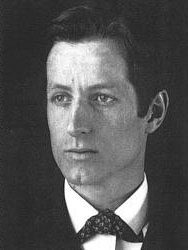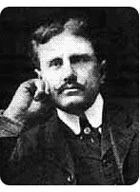
Maxfield Parrish: Sellout
Dear Greg:
It dawned on me yesterday that the preservation of written correspondence has another vital aspect: the preservation of our true history. I started thinking about this while I was watching the extra features on "The Gangs of New York" DVD. The dramaturges and historians who contributed to the script were telling how they put together the history of the Five Points area, an area that was a virulent slum back in the 1860's.
The squalor of the Five Points area is mentioned in the writings of Dickens and Whitman, but other than that, there were no truly reliable sources. Newspapers of the day were wholly based on sensationalism and hearsay. Imagine if you will all the New York City newspapers being earlier incarnations of supermarket tabloids that we have today – yes, even the old tombstone, The New York Times. Sources weren't cited, stories were fictionalized either in whole or in part, photography wasn't prevalent so there was no sort of verifiable picture evidence, etc. Now bear in mind the fact that much of our history to this point is gleaned from popular newspapers of the day (or their equivalent) if there is no other source available. If it were not for archeological evidence and personal correspondence, we would have no accurate history of the Five Points area, or of life in the Roman Legions, for that matter.[1]
So to flog my point even further, our situation today is that most of our personal correspondence exists as tiny magnetic impulses in some netherworld. All it takes is one good electromagnetic pulse and our voice–on–paper, the self–history of the common man from 1992 forward is erased. So that means that the only thing, or rather the only people who are writing our history right now are the same douchebags who write USA Today. Granted, modern journalism is a damn sight more reliable than the journalism of the Five Points era, but in my opinion, it is wildly inaccurate in giving a portrayal of the mind or language of the common man of today. I think that newspapers and magazines are more a reflection of what the average person will buy, and not what the average person actually thinks, or which events are of most importance or urgency to the world as a whole.
I'm not one of those people who wholeheartedly agrees with Noam Chomsky, either. From having worked in the news media, I know that news services tend to put the most emphasis on what they think will sell, as I mentioned above. Chomsky comes up just short of saying that there's a well–oiled conspiracy that turns the cogs of popular opinion. To wit, the New York Times' coverage of the situations in Cambodia and East Timor after the Vietnam War. Chomsky would like us to believe that the NYT was implicit in helping to direct attention away from the situation in East Timor because the United States was embarrassingly instrumental in supplying arms to a government that was practicing genocide. My view is that the NYT probably never made the connection between East Timor and our arms sales. Let me put it this way: the American public had been hearing about Southeast Asia and our involvement there for years. We had seen maps of the area behind Cronkite's head every night for a decade. We had 58,000 of our citizens die there. Now would you think it was easier for the NYT to sell papers to the average news consumer with headlines about Cambodia or East Timor? In fact, do you think that the average person, nay, even a person who was fairly well–informed could find East Timor on a map? The New York Times isn't stupid. They know their audience and they're in the business of making money, not of being some sort of Guardian and Disseminator of capital–The capital–Truth. But by the same token, it is the front page of the New York Times that informs the writing of our history. It will also wind up being the only perspective on our history if we don't leave some sort of verifiable artifact of our real history, and the only way we can do that as far as I can see is to preserve the art of personal correspondence.
Which brings me to the illustration that I put at the head of this letter. If it weren't for the intercommunications of the common man, I believe we would have lost the art of Maxfield Parrish. Parrish not only revolutionized painting technique, he expanded our color palette as well (Parrish Blue). Parrish was reviled by the press and hated by fellow artists. He was viewed as a sell–out and a cheater (for using photography in his work). He was also arguably the first truly commercial artist, which could be viewed either positively or negatively I suppose. If it were not for the spread of his popularity by word of mouth (read: personal correspondence), Parrish would not have reached the size of audience that he eventually did. By 1912, 25% of the houses in America had a Parrish print hanging in them. If it were left up to the papers and the art critics, Parrish would have been forgotten by history, or remembered as just another commercial artist hawking Jell–O.
A somewhat related tack: I'm beginning to realize that the general conception of historically famous persons, especially those in the arts and sciences, is misinformed. I think I told you in a previous letter about Jean Piaget, who is known as a child psychologist famous for the theory of the Stages of Development, which is widely accepted in psychological practices today. The fact of the matter is that Piaget was never a child psychologist at all, he was a biologist. Moreover, he was engaged in what sounds like some of the wildest science I've ever heard of: the search for morality in the fabric of the living cell. The Stages of Development stuff was just a by–product. But I've rarely found him introduced in any text that I've read as anything other than a child psychologist. If the truth be told, child psychology didn't exist as a science during the earliest part of Piaget's work, so I don't see how it's possible that he was a child psychologist. But that's just a temporal issue, perhaps. What I'm really getting at here is that those who write our history tend to classify things in a way that they believe will most easily digested or understood, not with an eye to what will be the most truthful.

O. Henry: Embezzler
Here's another example. Bill Porter was a recalcitrant bank teller of the same era of American history as M. Parrish. His greatest achievement during his early adulthood was embezzling $15,000 from his place of work, a feat which earned him 5 years of hard time in an Ohio prison. The boredom of prison life led him to try his hand at writing to pass the time. As legend has it, he began writing short stories and passing them along as correspondence through his local ward guard, Orrin Henry[2]. By the time he was released from prison, William Sidney Porter had become O. Henry, and by the time of his death was arguably the world's most famous writer of short fiction, and a primary architect of the short story form as we know it today.
I submit Porter's story as an example of a contribution to history that was made possible only by correspondence. Perhaps if it were the fact that Porter wasn't in prison and was actually trying to make it as a short–story writer, nothing would have happened. Perhaps there was a certain drive or urgency underlying his stories because they were his communication with the outside world. It is perhaps this subtext of ardent honesty, the need to be understood, that same sort of energy that drives all correspondence – perhaps that is the occluded spark that makes Porter's work what it is. Anyone can write ironically if they're trained well enough. So why is it that we use the phrase "O. Henry ending" as a universally understood term for a particularly exquisite type of denouement?
And of course all of this brings the discussion around to me, which in my neurotic inverted–prickly–pear world is what it's really all about. I find as I get older that my neuroses take on a more solid form (something like bas relief, actually). I see this as a positive thing, because they're easier to pin down, describe, and even criticize. I often see in my mind's eye one of my many cerebral homunculi guiding a pack of art students through a forest of Corinthian columns, the capitals of which are decorated with bas relief of each of my neuroses. The homunculus stops and directs the attention of the class to each carving with a slender olive shoot. They crane their necks and scribble notes as the homunculus lectures in condescending tones on the ridiculousness of the cognitive distortions inherent in creating such artwork, but also points out that the whole of this phalanx of columns also bears up the whole weight of the granite roof above them, and if the gross integrity of the structure were to be compromised by removing one of the capitals, they would all be squashed flatter than Nebraska. Salient point: they are not without function. The class nods slowly as a dawn of realization breaks over them. Then they move along.
I have no gauge of my daily progress toward any particular goal. The only thing I see is the interior surface of the feed bag in front of me, and the only thing I feel is the alternately mounting and cresting anxiety that it will become empty, and there will be no one around to refill it, nor will I be able to refill it myself. The feed bag is an allegory for any one of a dozen things: my future, my studies, my paycheck, my talent. It is a truly miserable mental life, but on the other hand, it is a mental life distended to such Chekhovian proportions as to seem hilariously ridiculous even to me.
So I look at guys like Piaget, Porter and Parrish and I find that what they became in history had almost nothing to do with where they were going in their lifetime. I feel a compunction to do something not just good, but great. I feel that I must, that it's expected of me, and if I don’t, my life would have been nothing more than one long parasuicide. Since I have no idea how to accomplish that, in the meantime I'm hand–wringingly disconsolate to some degree or other every day, wishing that something or someone would come along and decide for me how that was going to happen. Inasmuch as I can observe this behavior and understand it as ludicrous and hyperbolically neurotic, I'm okay with that. So I guess if anyone were interested, I could some day be eulogized very simply: "He was completely miserable every day of his life, but he was very happy about it."
Cheers, and give my best to Marie,
[1] A trove of correspondence between Roman soldiers and their friends and family back home has been uncovered in Northern England near Hadrian's wall. They were mostly asking the folks at home to send them money, sweets and underwear. And they bitched about not receiving enough mail.
[2] For accuracy's sake, please understand that this is only one explanation of Porter's pen name.




